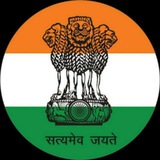tg-me.com/CSE_EXAM/42880
Last Update:
🔆Non-Communicable Diseases (NCDs)
✅NCDs are chronic diseases that do not spread from person to person but pose significant health and economic burdens. According to the WHO (2018), NCDs account for 63% of all deaths in India, with key contributors being:
🔸Cardiovascular Diseases (27%)
🔸Chronic Respiratory Diseases (11%)
🔸Cancers (9%)
🔸Diabetes (3%)
✅The increasing prevalence of NCDs is driven by multiple factors, including lifestyle changes, environmental conditions, and genetic predisposition.
🔸Lifestyle Choices: Tobacco use, alcohol consumption, unhealthy diet, lack of exercise, and air pollution.
🔸Health Risks: Obesity, high blood pressure, high cholesterol, and high blood sugar.
🔸Other Factors: Stress and hereditary predisposition.
📍Implications of NCDs
✅Health Burden: Increased demand for long-term care and treatment.
✅Economic Impact: Loss of productivity and higher medical expenses.
✅Healthcare Inequality: Limited access to early diagnosis in rural areas.
✅Government Initiatives
NP-NCD: Screening, early diagnosis, and awareness programs.
✅PMBJP Scheme: Affordable generic medicines.
✅AMRIT Program: Low-cost treatment for cancer and heart diseases.
✅Eat Right India Movement: Promotes healthy eating habits.
✅Ayushman Bharat: Free healthcare services for the underprivileged.
📍Way Forward
✅Strengthen Primary Healthcare for prevention and early detection.
✅Promote Healthy Lifestyles through awareness campaigns.
✅Improve Air Quality and reduce pollution-related risks.
✅Enhance Insurance Coverage for affordable treatment.
✅Encourage Public Participation in health initiatives.
#GS3
#science_and_technology
Join @CSE_EXAM
@upsc_science_and_technology
BY CSE EXAM ( UPSC prelims mains) CAPF

Share with your friend now:
tg-me.com/CSE_EXAM/42880
